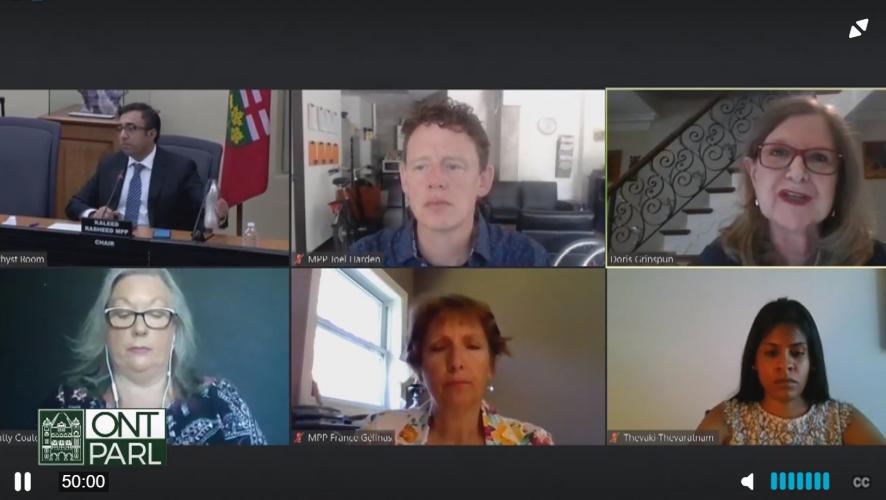
Modernizing the home and community care legislative regime
In June, RNAO provided feedback on the government’s efforts to reform the home and community care sector. Bill 175: Connecting People to Home and Community Care Act, 2020 repeals the 1994 legislative framework and integrates home and community care with the rest of the health system under Ontario Health.
It was tabled in late-February and passed third reading and received royal assent on July 8.
RNAO CEO Dr. Doris Grinspun told the Standing Committee on the Legislative Assembly that “the solution is to strengthen community care and anchor our health system in primary care,” as outlined in RNAO’s Enhancing Community Care for Ontarians (ECCO) 3.0 report.
While it is not perfect, RNAO supported the intent of Bill 175 as a means to fully enable the health transformation agenda. In her remarks to the committee, Grinspun noted the 16 recommendations in RNAO’s written submission are essential to realize the improvements needed in the home care sector. These recommendations also ensure the Act and associated regulatory proposals reflect the government’s commitment to a transformed health system aimed at achieving the Quadruple Aim (enhanced patient experience, better population health outcomes, reduction in costs and improved care-team well-being).
Given home and community care services have been largely forgotten during COVID-19 -- and vulnerable populations that depend on these services have paid the price -- Grinspun urged that the new home and community care regime reflect lessons-learned from the pandemic, which overwhelmed the long-term care sector. Several primary, home and community care services were deemed non-essential, affecting the health of thousands.
Grinspun said Ontarians want to stay and receive care in their homes for as long as possible, yet legislation and policies are not in place to allow for the supportive resources needed to make this a reality. Given the crisis with hallway health-care in hospitals, and wait times for long-term care, RNAO argued the ministry of health must increase funding for home care services to facilitate greater access to home care.
In addition, RNAO re-iterated its long-standing recommendation that the 4,500 RN care co-ordinators in Local Health Integration Networks be immediately transferred, with funding intact, to work in primary care and other community based organizations. RNAO urged the government to implement home care delivery models that ensure care and caregiver continuity, and emphasize expert clinical and relational care.
For more information about RNAO’s recommendations, check out the full submission.
RNJ ACCESS
You are only one quick step away from full access to all RNJ content.
Already an RNAO member? Log in
